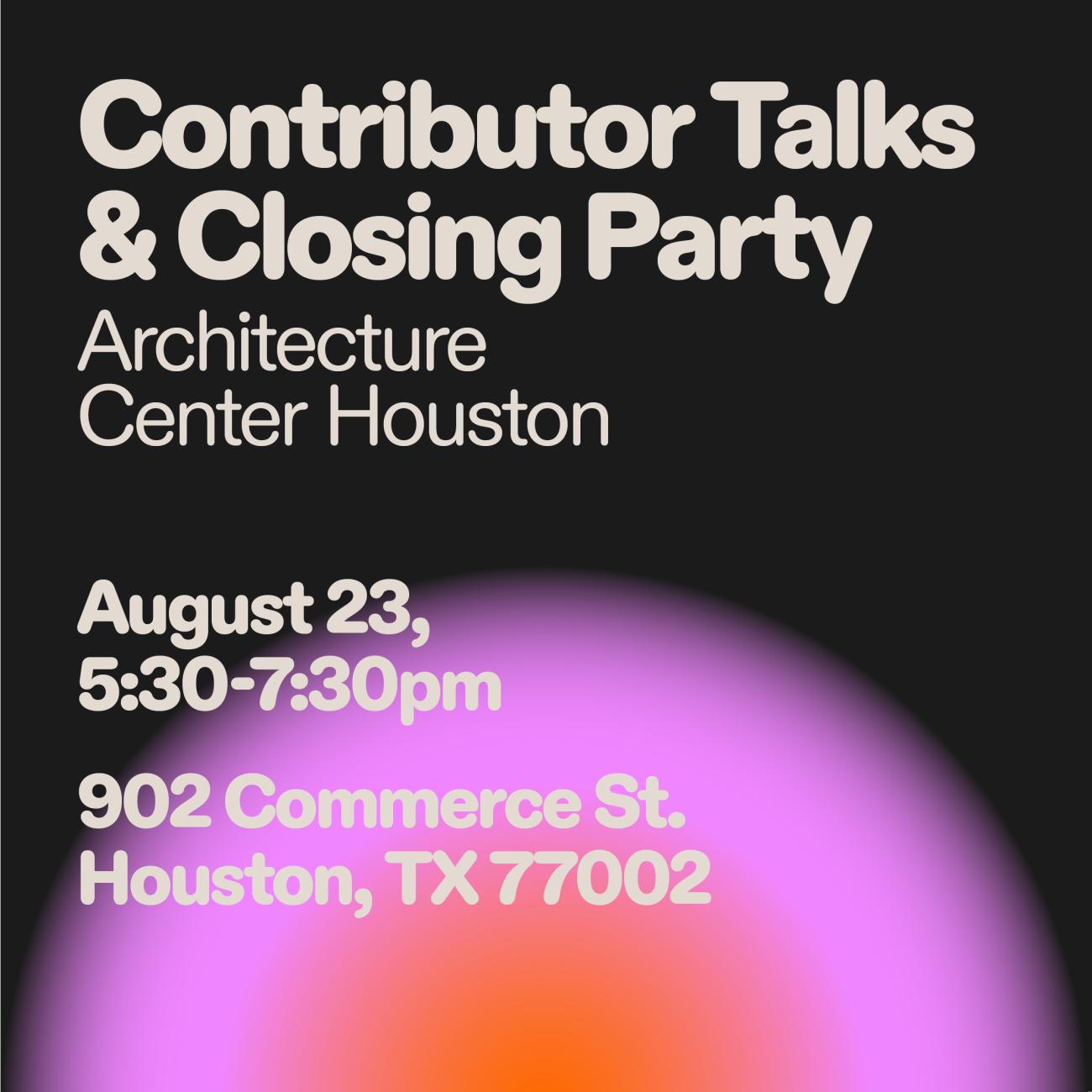Big, Hot, and Sticky, spotlights Houston as a novel urban ecosystem: a constellation of highways, waterways, air-conditioned buildings, remnant prairies, and possums. This exhibition invites seven designers to respond to Houston’s provocation through critical histories, design research, and speculative projects rooted in the city’s urban landscape: How are environments, climates, and cultures co-constructed? What is the future of this notoriously air-conditioned, car-centered, energy capital? What does it look like to thrive in a city that is Big, Hot, and Sticky?
Houston is Big, Hot, and Sticky. The metropolitan region is roughly 640 square miles, and from east of Galveston Bay to west of Katy, it is comparable in width to the State of Connecticut. For nearly one third of the year, the city’s temperature climbs to at least 90 °F; and 2,500 miles of slow moving, flat waterways crisscross the city creating a swamp-like environment.
Houston’s emergence as a metropolis, like many American cities, has been shaped by its defiance of the environment. From climate control to flood control, the city is a hyper-engineered, constructed landscape designed to resist the natural world. As Houston grows, however, so too does this tension between the natural and the human-made: from the shock of hurricanes and tropical storms to the chronic stresses of urban heat and nuisance flooding. In the face of these environmental challenges, engineered and technological solutions have a limited impact, and historically, have also been sources of inequality. Instead, what is needed is a more radical social, cultural, and ecological imaginary that recasts the city’s relationship to nature.
Contributors:
Cadaster
Lola Ben-Alon and The Natural Materials Lab
Dept.
Departamento del Distrito
Dalia Munenzon
Jess Myers
Fei Zhou
This exhibition is generously supported by:
Diluvial Houston Initiative, an Andrew W. Mellon Foundation-supported project; Rice School of Architecture, Gerald D. Hines College of Architecture and Design at the University of Houston, and Rice University Office of Research. Architecture Center Houston is funded in part by the City of Houston through Houston Arts Alliance.


